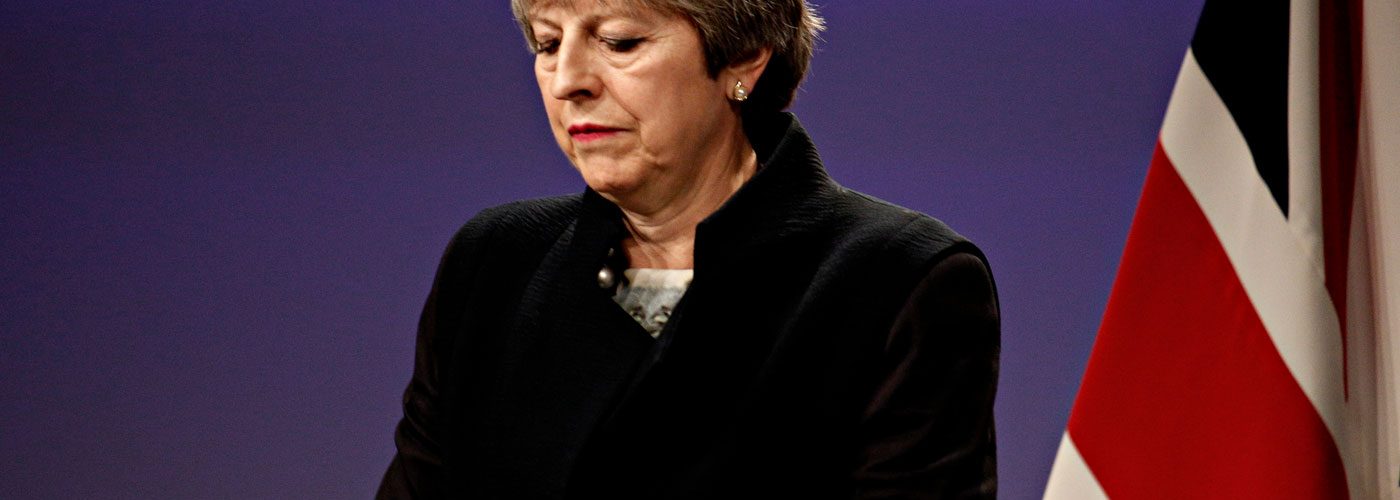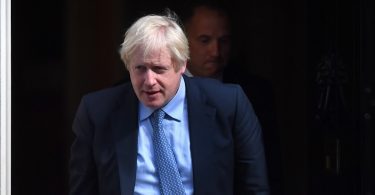An Article 50 extension would betray the referendum result and should be opposed; but if it is forced through we are still enormously better off than with Mrs May’s deal.
Key points:-
- A short Article 50 extension of under 3 months would make no practical difference and fear of one is not a reason for backing the deal.
- A long extension of 21 months would have the same practical result as the “implementation” period in the deal, except the UK would be much better off than under the deal because we would still have a vote and representation in EU institutions and the European Parliament.
- Unlike the deal, we would be free to leave on 1 January 2021 without being trapped in the “backstop” Protocol.
- Our financial liabilities during the 21 month extension would be the same as under the deal, but unlike the deal, we would have no obligations afterwards.
- Unlike under the deal, we would not be subject to indefinite ECJ jurisdiction after 2020.
- We would not be subject to EU State aid controls after 2020, nor to Commission and ECJ “long tail” powers after that date.
- We could line up international trade deals to come into force from 1 Jan 2021. Under the deal, we could not do this because the backstop Protocol and the commitments on tariffs we have made in the Political Declaration mean we could not assure negotiating partners that we would be in a position to implement deals with them.
- We would have more time to prepare for a “no deal” Brexit, enhancing our negotiating power with the EU, and also more time to develop and deploy alternative customs control methods on goods crossing the Irish border.
- An Article 50 extension is obviously being used as a ‘Trojan horse’ by Remainers and referedum-deniers who want to reverse Brexit. But Brexit supporters should not be swayed by that into supporting Theresa May’s deal which would poison Brexit and create a situation so bad that calls to re-enter the EU would grow in order at least to have a vote on all the areas where we will be rule-takers from Brussels.
The growing calls for an Article 50 extension
The Prime Minister’s statement to the House of Commons on 26 February 2019 opened the door to a “short, limited extension to Article 50 not beyond the end of June” if the House again rejects her deal on 12 March. She thereby abandoned her commitment, repeated in the Commons more than 100 times, that the UK will leave the European Union on 29 March 2019.
Without any apparent consciousness of the irony, she told the House that she would stick by her commitment to hold a vote on extending Article 50 “as I have [stuck by my] previous commitments”.
But in the background, there is a threat of a much longer extension. On 11 February 2019, Olly Robbins, the PM’s chief Brexit “negotiator” was overheard by an ITN reporter in a Brussels hotel bar, saying that he expected MPs in March to be presented with the choice of backing a reworked Brexit deal or a potentially significant delay to Brexit.
Opinions differ on whether making comments of this kind in a public bar was an accidental gross indiscretion on the part of a highly placed civil servant, or whether it was said in a Machiavellian bid to send a coded message to MPs without implicating the Prime Minister personally in saying something so contrary to her public stance.
Whatever is the right interpretation on this point, the idea of a long Article 50 extension is emerging from other sources. On 24 February 2019, The Guardian reported:
Brexit could be delayed until 2021, EU sources reveal. … But sources said the EU was determined to avoid a series of three-month extension requests by the UK, which would cause damaging uncertainty, leaving Brussels unable to plan for the future. The emergence of the idea of a 21-month delay to Brexit will be seen by some as an attempt to push Brexiter MPs into backing May’s deal. The EU’s chief negotiator, Michel Barner, had advised ambassadors last week that the threat of a lengthy extension could be used by May as leverage in talks with her Brexiter MPs as she seeks to nudge the deal through parliament.”
How should opponents of the deal react to the threat of an Article 50 extension?
Despite her protestations about not wanting an Article 50 extension, it is clear that Theresa May is now seeking to use the threat of one as a lever to exert pressure on MPs opposed to her deal. But how should they react to such a threat?
First, an Article 50 extension to late June is no threat at all. A 3-month extension provides at most three more weeks of negotiating time, as I (and others) have previously pointed out. This is because the European Parliament will dissolve on 18 April prior to its elections. If a deal is not agreed by then it will no longer be possible for it to be approved by the European Parliament. Such approval is legally required under Article 50 before the EU can formally conclude the deal.
So an extension to late June merely provides three weeks for further procrastination and delay. If a deal is not concluded and approved by the European Parliament before 18 April, the UK will then automatically leave the EU without a deal at the end of June. So, unless the deal is radically altered in order to make it acceptable through removal of, or major surgery on, the backstop, the reasons for voting it down will be just as strong as when the House rejected it by a majority of 230 votes in January.
What of a longer extension?
Let’s suppose that there is a threat of a much longer extension, say of 21 months to the end of 2020.
It seems to be assumed by those who utter such threats in Brussels bars and elsewhere that opponents of Brexit ought to quake at such a prospect, and then vote for Theresa May’s deal to “get Brexit over the line”.
But let us calmly compare the actual consequences of such a 21 month extension with the alternative of Theresa May’s deal. In objective terms, a 21 month Article 50 extension is miles and miles better from a leave perspective than Theresa May’s appalling deal.
Let us look at the key points in turn.
Transition period: A 21 month Article 50 extension would lock the UK into having to obey EU laws across the board until 31 December 2020. But that is exactly what Theresa May’s transition period would do – the one she insists on calling an “implementation period” even though there will be no concluded trade deal to implement, just more turmoil-filled negotiations taking us up to another mythological “cliff edge” at the end of the transition period.
The big difference would be that under an Article 50 extension, the UK would continue to be represented in EU institutions, and continue to exercise a vote and veto (where unanimity is required) over new EU rules. Further, we would elect a new phalanx of MEPs, large numbers of whom would be Brexit supporters who would be robust in defending Britain’s interests and in disrupting the EU’s centralising plans.
No backstop: The next huge point is that under the Article 50 extension the UK would not be bound by the backstop Protocol, which under Theresa May’s deal would kick in on 1 January 2021. Instead, on 1 January 2021 we would just leave unencumbered. We would be able to negotiate for a trade deal with the EU with a strong hand, and our negotiating position would not be crippled by being prospectively or actually locked into the backstop as it would be under Theresa May’s deal.
Financial claims: Under an Article 50 extension, we would automatically be liable to contribute as a Member State to the EU budget up to the end of 2020. But that is exactly what we are obliged to do under Theresa May’s deal, up to the end of the transition period which will last at least to the end of 2020 but might be extended for up to 2 years more. The big difference is that under Theresa May’s deal, we would be liable for huge additional ongoing financial liabilities after that date. These will be adjudicated on by the ECJ and not by a neutral independent body.
ECJ Jurisdiction: Under the extension, we would continue to be subject to the ECJ’s jurisdiction across the board until the end of 2020. But so will we under Theresa May’s deal, the difference being that under her deal we will no longer have a British Judge and Advocate-General as members of the Court. But the really big difference comes after the end of 2020: at the end of the extension, we shall be free of the ECJ. Under her deal, we shall be subject to its continuing jurisdiction over wide areas for the indefinite future.
State aid controls and “level playing field”: Under an Article 50 extension, we would be subject to EU State aid control as a Member State but at least we would still have political influence and representation on the Commission. These controls would then cease to apply to the UK after we leave at the end of 2020. By contrast under the Theresa May deal, we would have no political influence over the way these controls are exercised during the transition perid, and these controls would continue to apply both to Northern Ireland and Great Britain under the backstop. In addition beyond that, she has given a commitment in the Political Declaration that the UK will continue to submit to these controls permanently.
International trade policy: Under an Article 50 extension, we could not operate our own tariffs or implement our own free trade agreements until the end of 2020. However, we could negotiate and line up deals to come into force on 1 January 2021. (Note that there is no validity in the argument that the EU treaties prevent us from negotiating and concluding trade agreements while we are members which come into force after we leave: see Negotiating International Trade Treaties Before Exit).
By contrast, Theresa May’s deal would oblige us to apply EU external tariffs up to the end of 2020 in the same way as if were still members, except of course we would have no vote. But in addition her deal would prevent us from negotiating any deals with third countries because we would not be able to guarantee to trade partners that the backstop would not kick in and lock us into an indefinite customs union with the EU. The Political Declaration’s paragraph 23 on tariffs requires us to negotiate a long term arrangement with the EU which “builds and improves on the single the customs territory” in the backstop, and is completely incompatible with having a conventional Canada-style free trade agreement with the EU. This and other highly damaging parts of the Political Declaration (such as sharing of fishing waters) cannot simply be ignored as having no legal force, since the Withdrawal Agreement legally commits both the EU and the UK to use their best endeavours to negotiate a long term deal in accordance with the Political Declaration.
More time to prepare for “no deal”: The Article 50 extension would give us more time to do what Theresa May’s government should have been doing all along during the two and a half years since the referendum. That is to prepare overtly, steadily and determinedly for a no deal exit, as a twin-track alongside negotiating with the EU. This would strengthen our negotiating position, and with Theresa May’s deal in the bin we could actually press for a deal which genuinely protects our ability to forge an independent trade policy and also deals with the Northern Ireland border issue by alternative means.
An Article 50 extension is also compatible with the Malthouse Compromise, since the extended Article 50 period would substitute for the transition period up to the end of 2020. But, as explained above, we would be much better off than in the transition arrangement, since we would retain our vote and voice within the EU institutions.
So what’s the threat in an Article 50 extension?
When you want to get someone to do something by threatening them, the normal protocol is that you threaten them with something which is worse than the thing you want them to do. However, in this case, it is the other way round. The ‘threat’ is manifestly more advantageous in every way than the thing the threatener wants the threatened to do (vote for the Theresa May deal).
Of course it can be argued that the practical consequences as set out above of the Article 50 extension are not the only thing to think about, and one must also think about the danger of the extended period being used by unreconstructed Remainers and referendum-deniers to reverse Brexit altogether.
To those who are worried by this issue, I would make two points, one negative and one positive.
The problem with Theresa May’s deal is that it poisons Brexit by closing off the freedom of action which is the whole point of Brexit, and drains away its advantages. Those who blithely talk about busting out of the backstop Protocol in the future by breaching treaty commitments gravely underestimate the difficulties of pursuing such a course of action and the damage to the UK’s standing and international interests if it were to be attempted.
If Brexit supporters are complicit in miring the UK for a decade or a generation in such a terrible vassal arrangement with the EU, inevitably calls will grow for us to re-join the EU in order at least to get back a vote on the rules which we have to follow.
On a positive note, even if the Remainers were to get the long extension which they crave, it does not mean that the support will be there either in Parliament or still less in the country to hold a second referensum or to reverse Brexit. The Labour party in particular would find it very difficult if it alienates its leave-supporting voters in the many marginal seats where they are plentiful.
And there are severe difficulties in the way of getting such an extension in the first place. The EU is wary of the problems which would be created by holding the European Parliament elections in the UK. The Conservative Party should be not simply wary, but alarmed across the board, at such a prospect, since a decimation of the Conservative vote in the face of Nigel Farage’s reinvigorated Brexit party cannot be ruled out. And if the Brexit party establishes itself with a big vote in the European Parliament elections, it will not go away and will be a real vote-splitting problem for the Conservatives in by-elections and at the next general election – an even greater problem than UKIP was in the past.
The EU may well not be willing to agree to an extension. It only takes one member state to veto it. As I point out above, a long Article 50 extension would materially strengthen the UK’s bargaining position and the EU might not wish to facilitate that on top of the European Parliament elections problem. And would a long Article 50 extension actually get through the House of Commons, after the backlash against those who support it from betrayed leave voters is taken into account?
So, if the deal is bad and stays bad, there is no reason for MPs who oppose it to panic and change their position, and every reason why they should stand firm in the face of these Article 50 threats.







